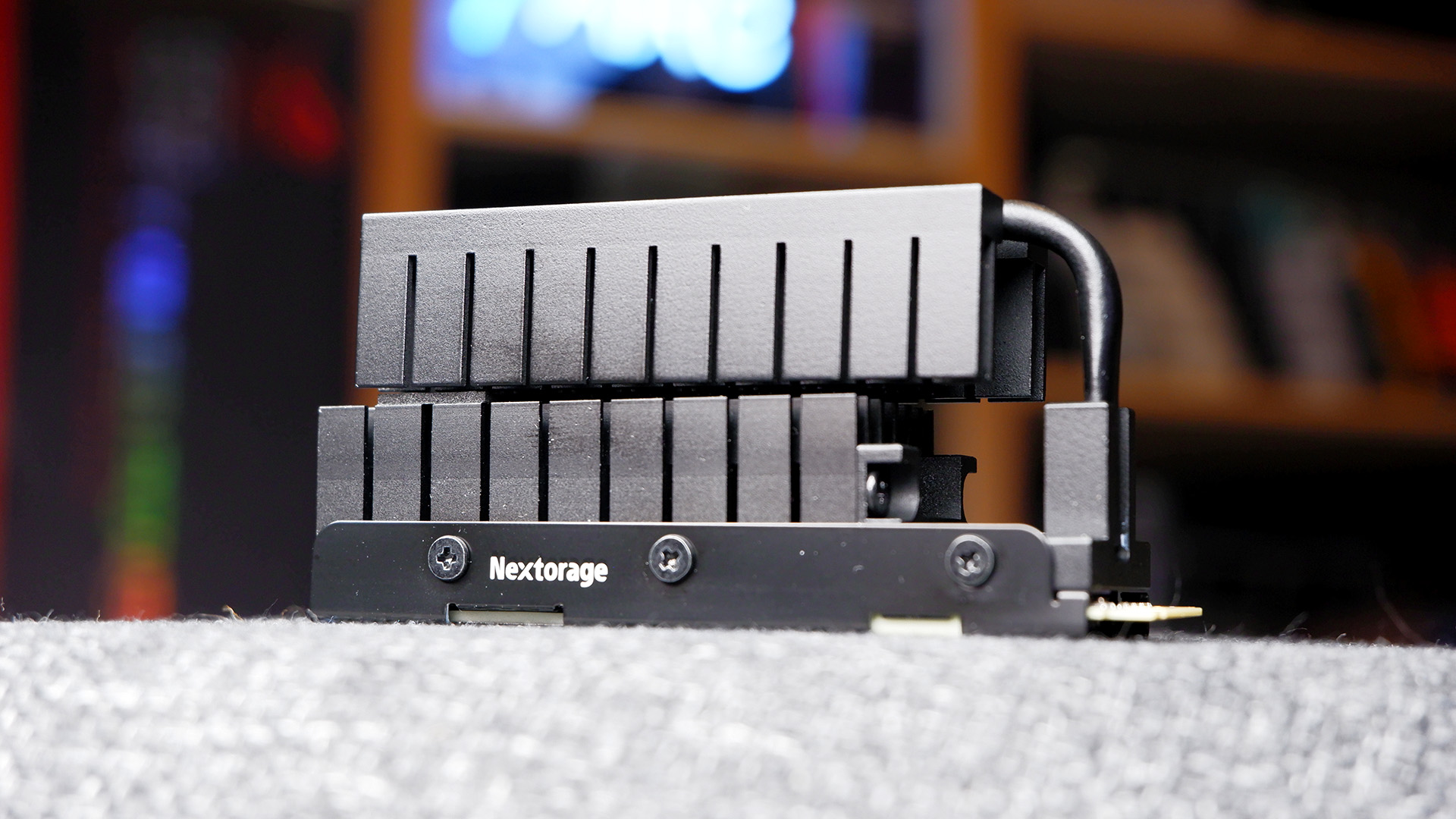Our Verdict
The Nextorage X Series (NN5PRO) 2TB is one of the fastest SSDs we've ever tested, but boy is it one of the most expensive, and least practical, too.
For
- One of the fastest drives we've tested to date
- Rapid random writes
- Decent extended write speed
Against
- $0.20/GB
- Doesn't offer much to gamers
PC Gamer's got your back
What are you after in your next SSD upgrade? If speed is your primary desire, you will find plenty of it with the Nextorage X Series. This PCIe Gen5 compatible 2TB SSD easily crunches through files at upwards of 12 GB/s—excellent for a high-end workstation with plenty of lanes to spare. However, Gen5 drives still face a significant hurdle before mass adoption in gaming PCs: they're expensive and there's little benefit today to the faster speeds they offer.
The Nextorage X Series is right up there with some of the more performant Gen5 SSDs going, such as the Crucial T700. It's faster than the Seagate FireCuda 540 we reviewed last year, too, though it shares similarities to both drives: the Nextorage uses the same Phison E26 controller and Micron 232-layer TLC NAND.
The X Series 2TB SSD is rated to 12,400 MB/s sequential read and 11,800 MB/s sequential write. It gets pretty close to those figures in my own testing within CrystalDiskMark, reaching 12,348 MB/s read and 11,679 MB/s write. That's about as on the money as I'd like for any drive.
Those are burst speeds, however, and over longer jobs you'll see some significant drop off, namely once the pseudo-SLC write cache has been expunged and the drive falls back on the NAND's native TLC performance. Our sustained write test within IOMeter gives a good indication of when you can expect that to happen: after around 322GB of data has been written to the drive in a single sustained job. That's around 16% of the drive's total 2TB capacity.
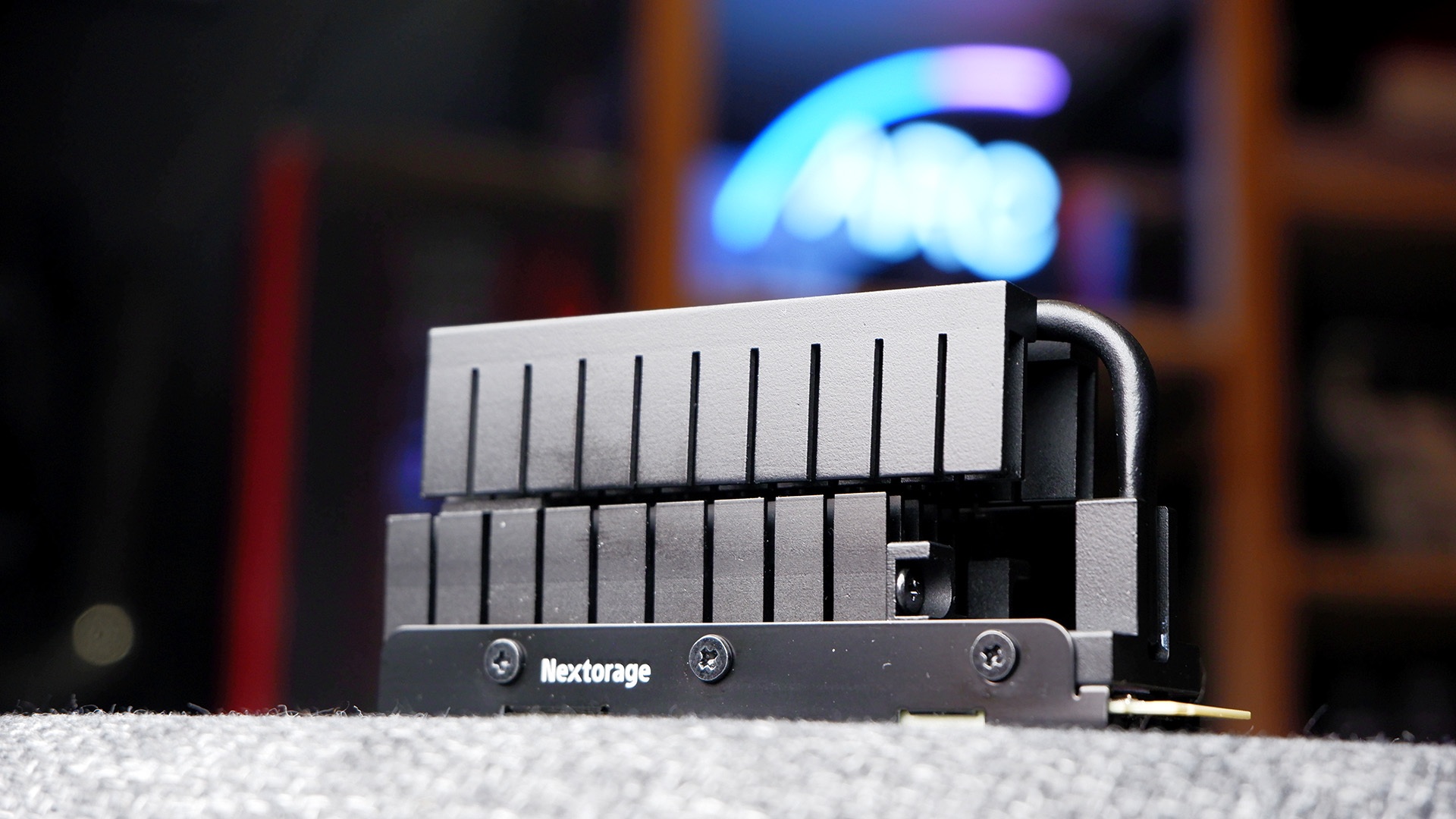
Capacity: 2TB/1TB
Interface: PCIe Gen5 (NVMe)
Size: 2230
NAND: Micron 232-layer 3D TLC NAND flash
Controller: Phison E26 controller
DRAM: 4GB DDR4 SDRAM
Seq read (rated): 12,400 MB/s
Seq write (rated): 11,800 MB/s
Endurance: 1,400 TBW
Warranty: Five-year
Price: $400
The native TLC performance isn't dreadful, either. Even after the cache is saturated, write speeds stuck around the 3,600 MB/s mark for over four minutes. By that point, the drive has shifted a lot of data. After that it plummets to 1,200 MB/s, though I doubt many users will ever see this sort of speed.
It's unlikely that you'll run into the native TLC performance all that often, unless you're using this drive to move massive files around regularly. Say, if you're a video editor working with 4K footage. That is a likely user for this sort of drive: the Nextorage X Series is intended for use by both gamers and professionals, hence why it's also inclusive of DRAM.
It's growing increasingly rare to find actual DRAM loaded onto a SSD on many of the best SSDs for gaming—DRAM comes at an added cost and HMB tends to work just as well for many workloads associated with gaming—though it does offer a performance uplift, particularly for random writes. You can actually see what the DRAM gets you in the benchmarking figures I've provided—the Nextorage is the fastest drive we've ever tested for random 4K write speeds at 336 MB/s. That's quicker than even the Crucial T700, which also includes DRAM onboard, and way in excess of any DRAM-less drives.
For the X Series, which is both billed as a high-performance gaming SSD and a professional workstation SSD, it makes a lot of sense as to why DRAM has been included. Though it does run a significantly higher cost for it. The X Series 2TB model runs up a stark bill at $400. That's practically $0.20/GB.
You can purchase a Silicon Power XS70 with a 2TB capacity for around $150 today, which works out to a little over $0.07/GB. The Nextorage is 67% faster than the Silicon Power XS70 in sequential read, 69% faster in sequential write, 31% faster in random read, and 30% faster in random write. What does that actually mean for gaming load times? It'll take 7.7 seconds to load Final Fantasy XIV: Shadowbringers on the Silicon Power and 6.4 seconds on the Nextorage—that means you're getting into the game a whole 20% faster.
And all for just 166% more cash.
For the price of a graphics card, a powerful CPU, or even a flight abroad, you could instead buy the Nextorage X Series. It's not the fault of the Nextorage—increasingly diminishing returns are a common trait across all PCIe 5.0 SSDs right now. The Crucial T700, which is practically the same drive, is on sale for $290/£295 at time of writing. Even with that cheaper drive I have major reservations.
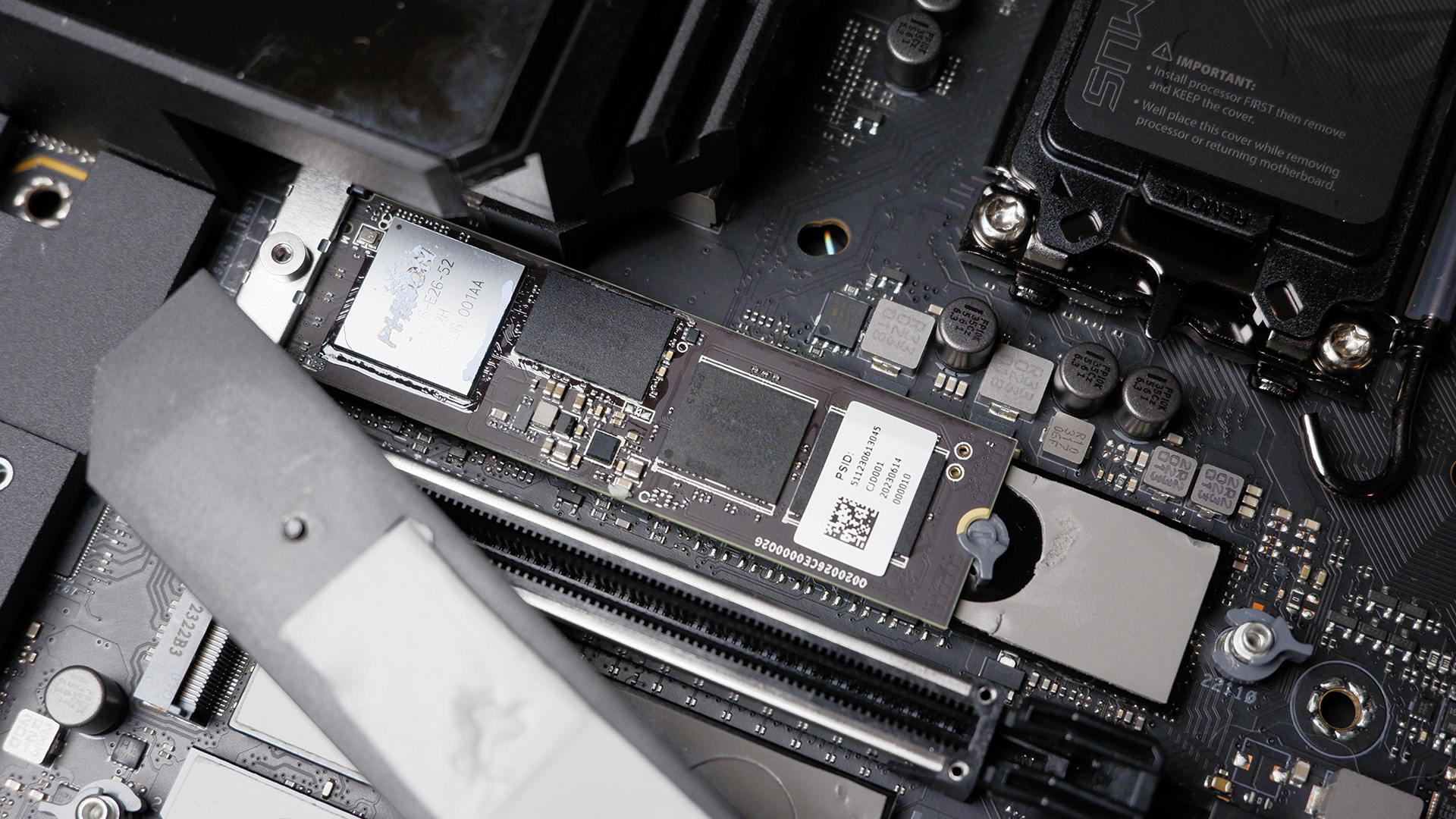
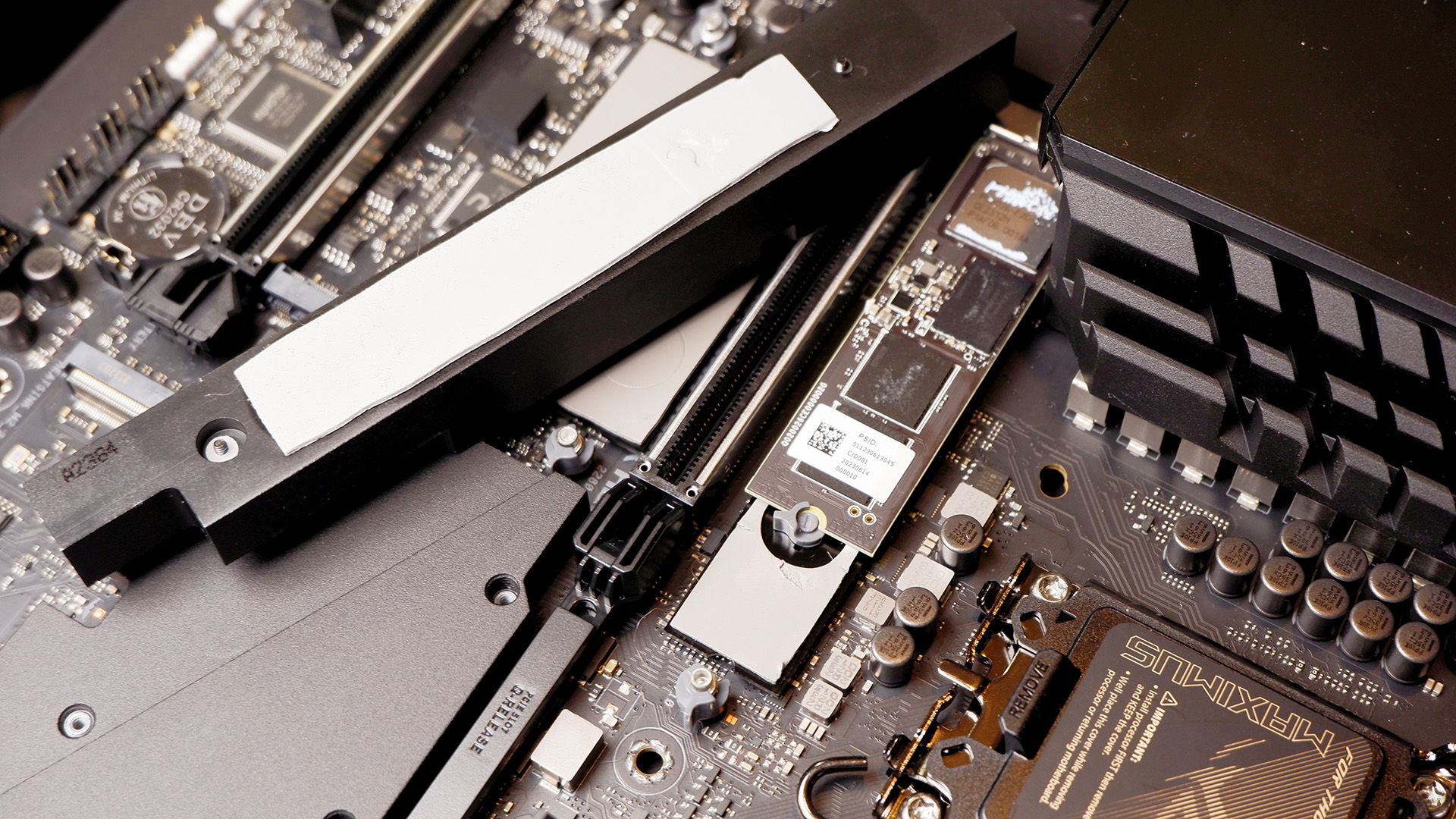
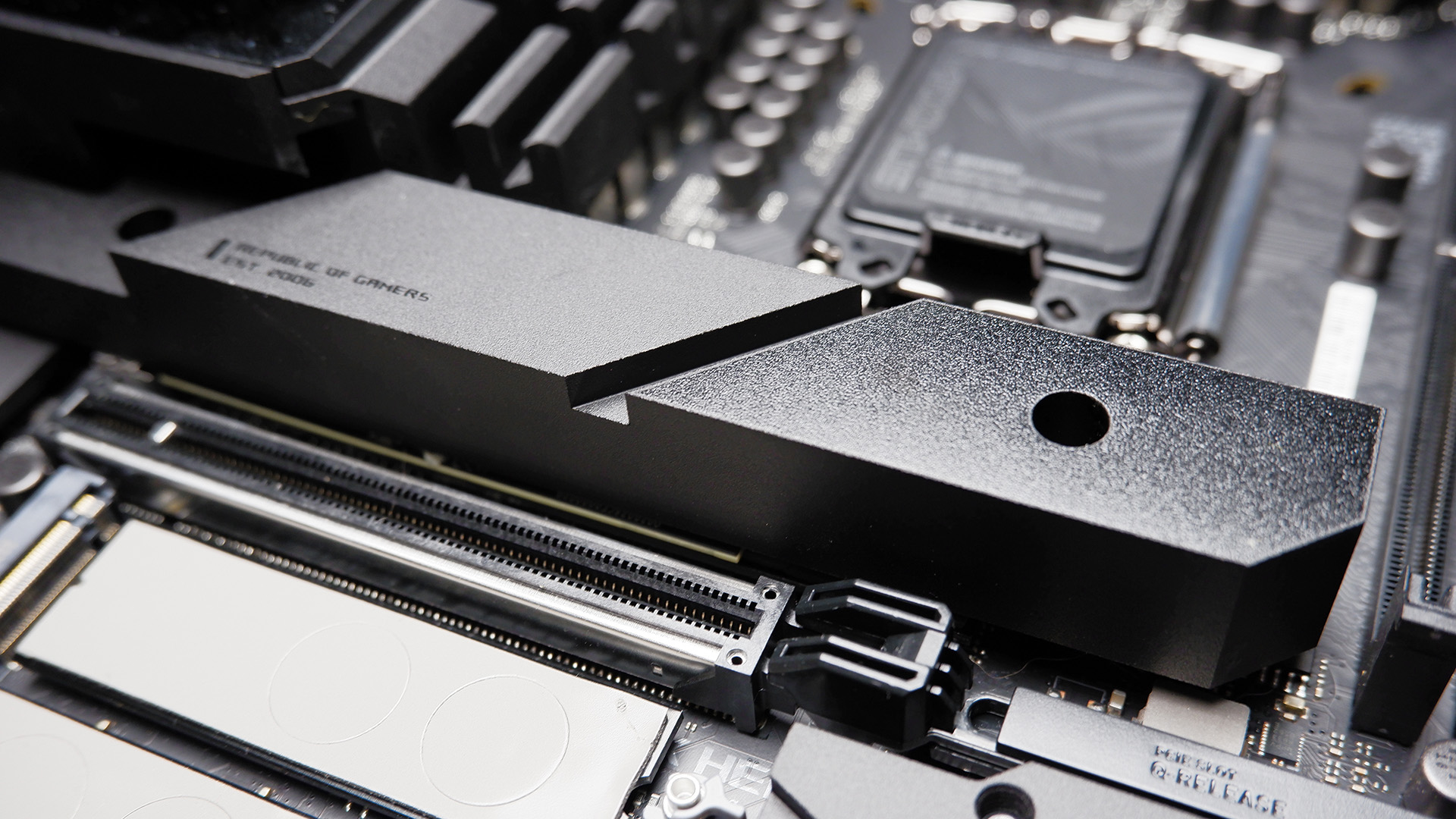
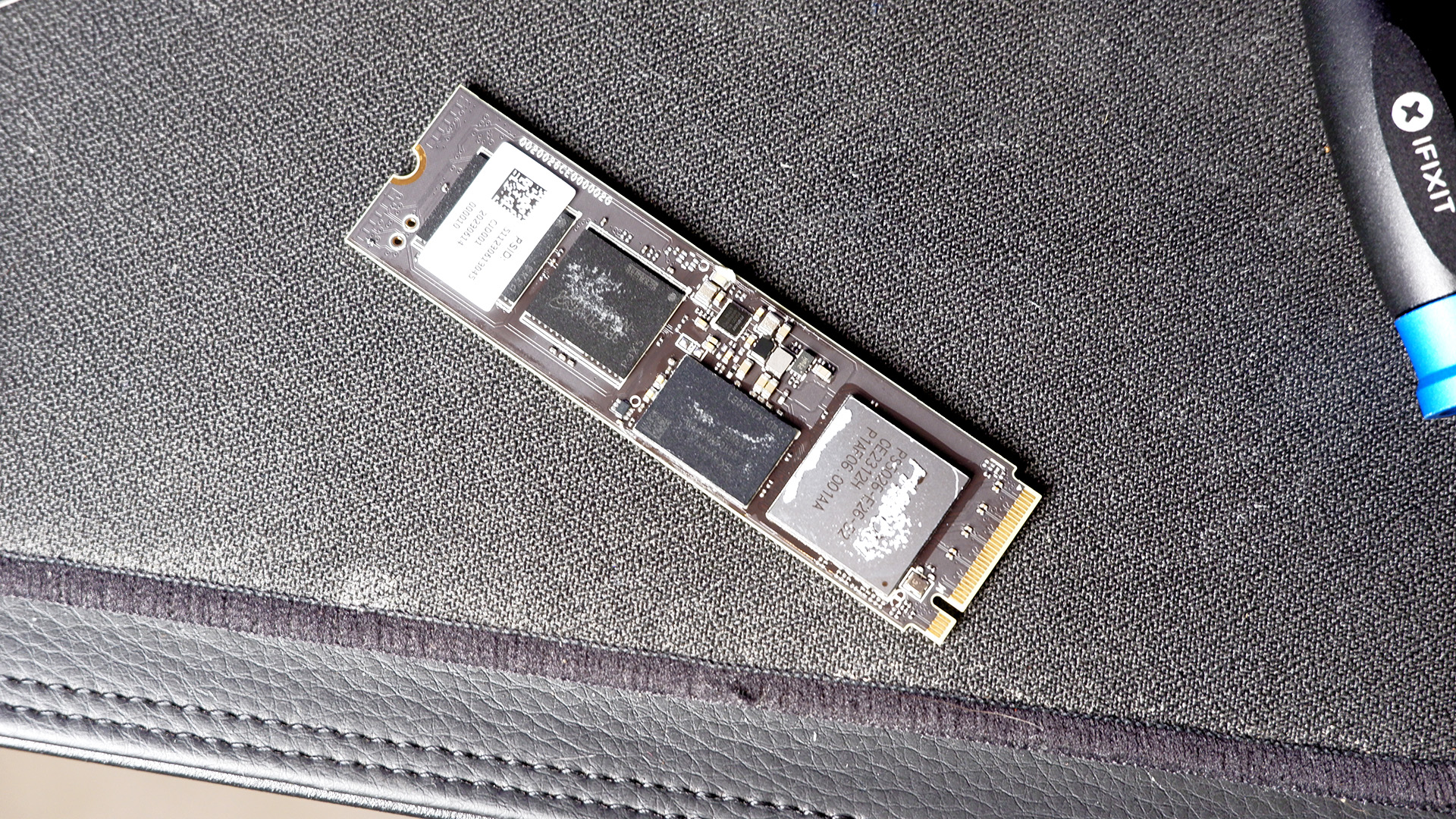
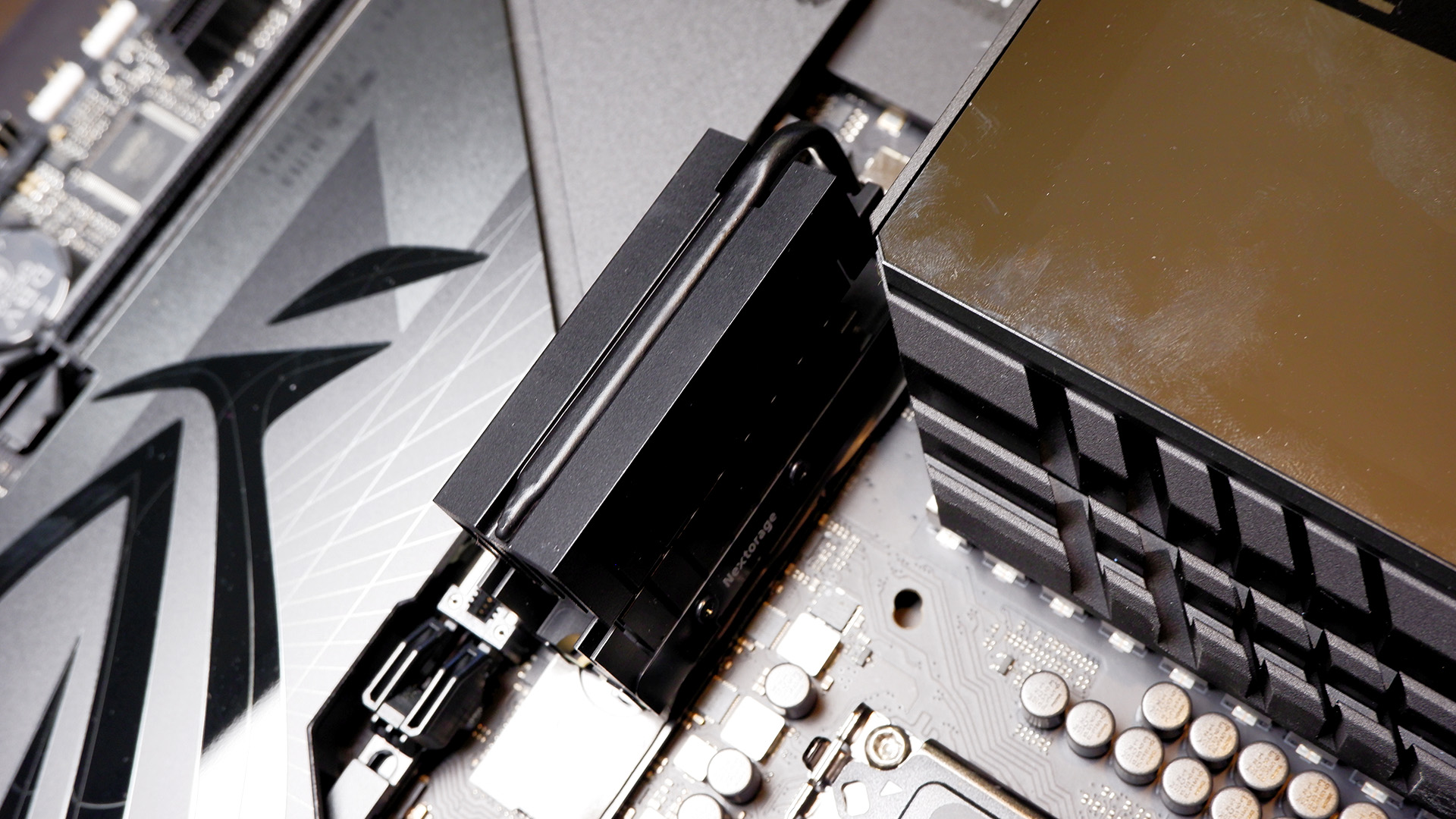
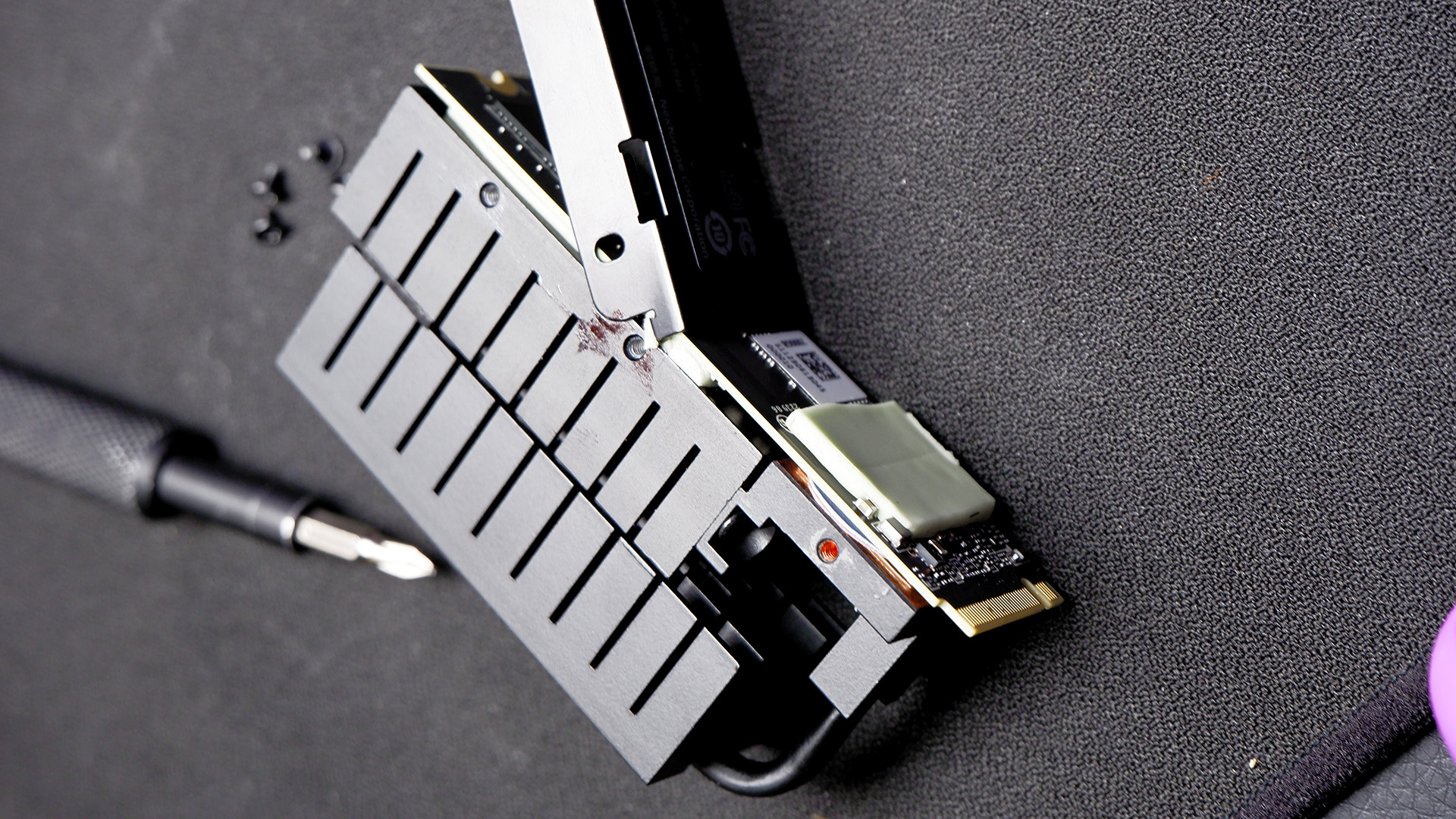
✅ You have money burning a whole in your pocket: I don't want to be too down on the Nextorage, considering it is the fastest SSD we've ever tested for random reads/writes. It's just that its speeds are practically of little use to most people, especially gamers.
❌ You want the best blend of capacity and speed: You can pick up a Gen4 SSD with rapid read and write speeds and 4TB capacity for the same amount of money, if not less, than this 2TB Gen5 drive.
❌ You're just a gamer: That's not meant to sound like an insult—I'm just a gamer too. That's why this Gen5 SSD is mostly wasted on me. It's a lot of money to pay for diminishing returns in load times.
The Nextorage X Series does at least include a passive twin-heatsink for that sum of money, which adds considerable height to the drive once installed. Unfortunately I have been unable to test this drive with the included heatsink, at no fault of Nextorage. The ROG Z790 Dark Hero motherboard I use for Gen5 testing has a slight overhang from the IO cover that sits just above the only Gen5 capable slot and blocks any coolers of any considerable height. Instead, I opted for the included metal heatsink included with the motherboard for all testing in this review.
The maximum temperature I measured with the Nextorage X Series under our standard testing was a reasonable 63°C. During the sustained write test, which is less applicable to real-world use, it reached 83°C, which is a tad too toasty for comfort. NAND shouldn't sit at this sort of temperature for very long.
The Nextorage X Series may be billed as a high-performance gaming drive, alongside its professional credentials, but I expect few PC gamers will find it appealing enough to spend so much on their Steam library. Perhaps professionals to whom time equals money will find it more fitting, but even that may be a tough sell with so few motherboards offering more than a single Gen5 slot and capable of reaping more benefits of the higher bandwidth offered.
That said, it is the fastest SSD for random reads/writes we've ever tested—it's just of relatively little use.
The Nextorage X Series (NN5PRO) 2TB is one of the fastest SSDs we've ever tested, but boy is it one of the most expensive, and least practical, too.

Jacob earned his first byline writing for his own tech blog. From there, he graduated to professionally breaking things as hardware writer at PCGamesN, and would go on to run the team as hardware editor. He joined PC Gamer's top staff as senior hardware editor before becoming managing editor of the hardware team, and you'll now find him reporting on the latest developments in the technology and gaming industries and testing the newest PC components.
